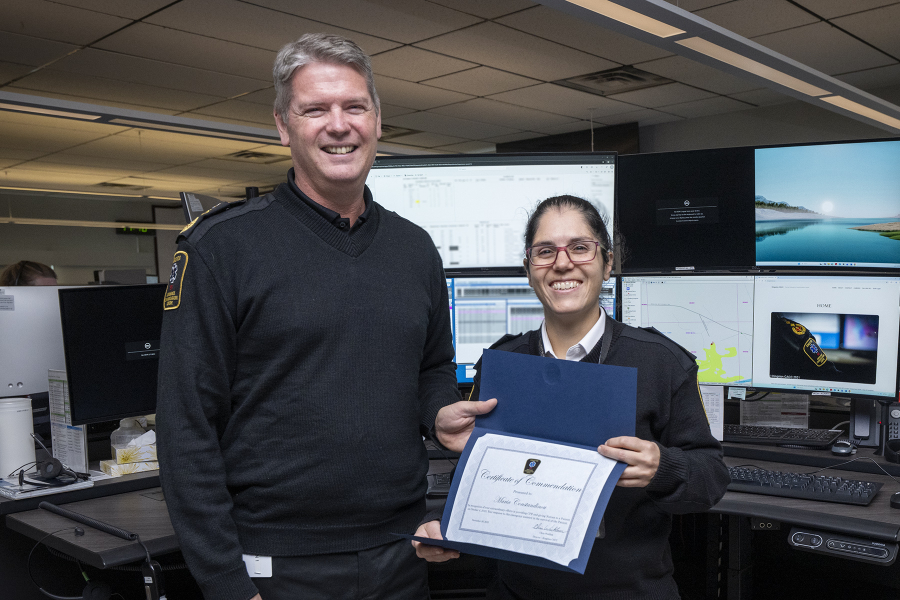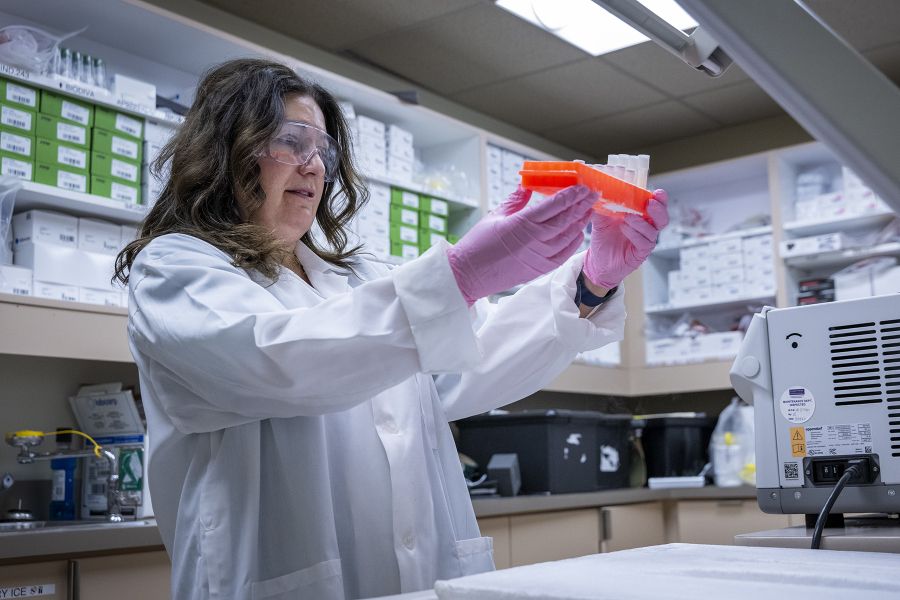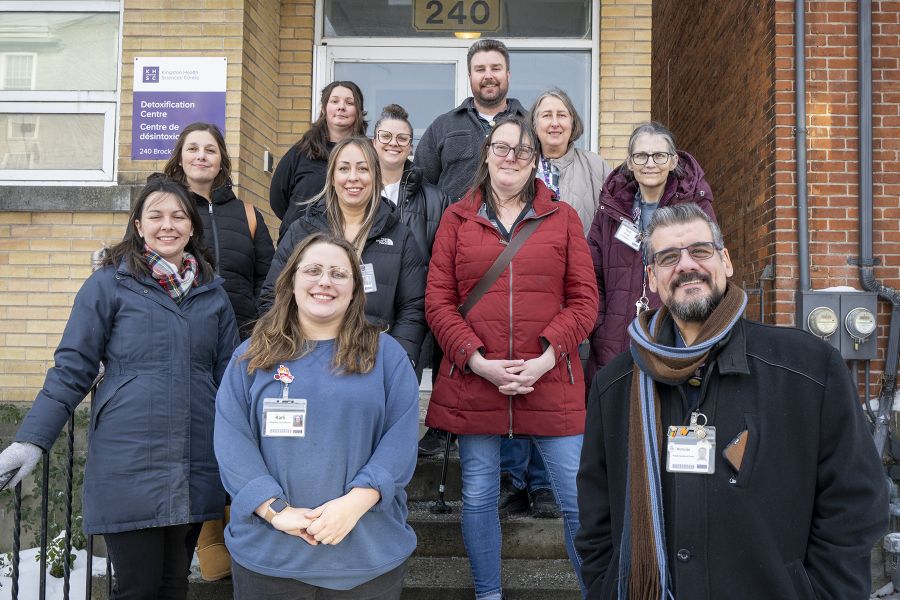Effective immediately masking is required for everyone when present on all inpatient units, in the Emergency Department (ED), the Urgent Care Centre (UCC), and the Children’s Outpatient Centre (COPC).
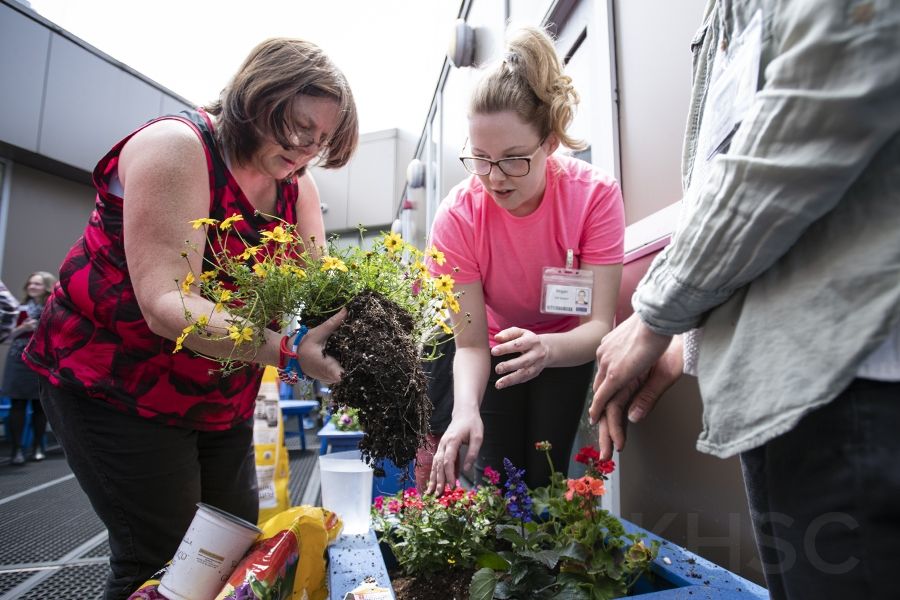
While psychiatry, nursing, social work and occupational therapy are the common inpatient services available to people admitted to Kingston Health Sciences Centre’s (KHSC) Mental Health Program at the Kingston General Hospital site, more therapeutic programming is being offered by dietitians, spiritual care workers and community partners such as Peer Support South East Ontario to help people prevent associated illness, and develop coping strategies that support their individual journeys to recovery.
“People with a high severity of depression and psychosis such as schizophrenia are typically at an increased risk of cardiovascular disease and diabetes due to lifestyle choices or the effects of their medications,” says Dr. Adriana Carvalhal, Psychiatrist-in-Chief at KHSC. “While they are here, and when their conditions are stable, it is important that we begin to raise their awareness about what they can do to take care of their physical, mental, emotional and spiritual health.”
“Eating healthy, exercising, and engaging in constructive, relaxing activities that take our minds off of our problems are difficult things for anyone to do,” says Carvalhal, “now, imagine having a severe mood disorder and trying to do those things: it’s not impossible, but it is much harder. What makes it easier is having a routine.”
Since last fall, a multidisciplinary team on the inpatient mental health unit has been working on creating routine for patients by transforming the wellness programming that is offered, and ensuring it is integrated into patients’ treatment plans and discussed daily when the care team meets.
“We know that there are a variety of activities that have positive effects on our overall wellbeing,” says Melanie Darling, the transformation team’s lead and Interim Program Manager for the Intensive Transitional Treatment Program and the Child & Adolescent Unit. “Because recovery is individual, it is important to offer variety since people respond differently to each activity.”
During the first two weeks in June, to coincide with Global Wellness Day on June 8, wellness programming on the mental health inpatient unit was amped up to further raise awareness among staff and patients of the importance of recreational activities for our health.
The KHSC therapy dogs made more appearances on the unit during those weeks, the unit’s new exercise bike was unveiled, and Peer Support South East Ontario delivered a Wellness Recovery Action Plan (WRAP) workshop. WRAP is designed to help individuals identify the tools and plans they need to maintain wellness as they move forward in their recovery journey. As well, one-on-one Peer Support staff meets with people after their hospital stays to connect them to community supports that may help them avoid preventable hospital stays.
“It was very nice to talk with people who have gone through similar experiences and interact with them, as they were very helpful and non-judgmental,” said Barbara after participating in a Peer Support workshop.
One of the highlights of the week was a gardening activity that transformed the Burr 4 patio into “the right environment in which to relax,” as described by James Graham, Spiritual Health Practitioner. When James asked the patients how they felt after the activity, one person responded with a simple, yet profound, “well.” And then she added that “there is something good about getting your hands dirty and working with nature, as well as bonding with others around a simple activity.”
Gallery
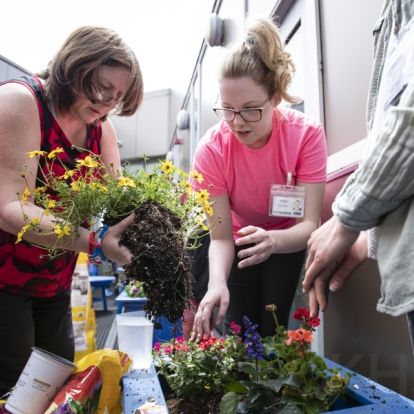
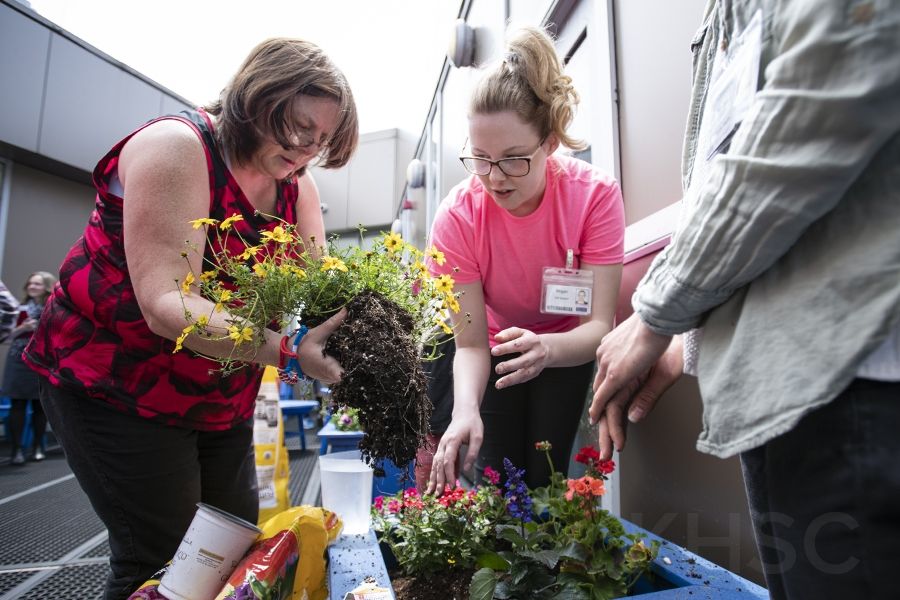
Mental Health Program staff wore bubble-gum pink t-shirts for two weeks in June to raise awareness of the importance of wellness activities for our overall wellbeing.

